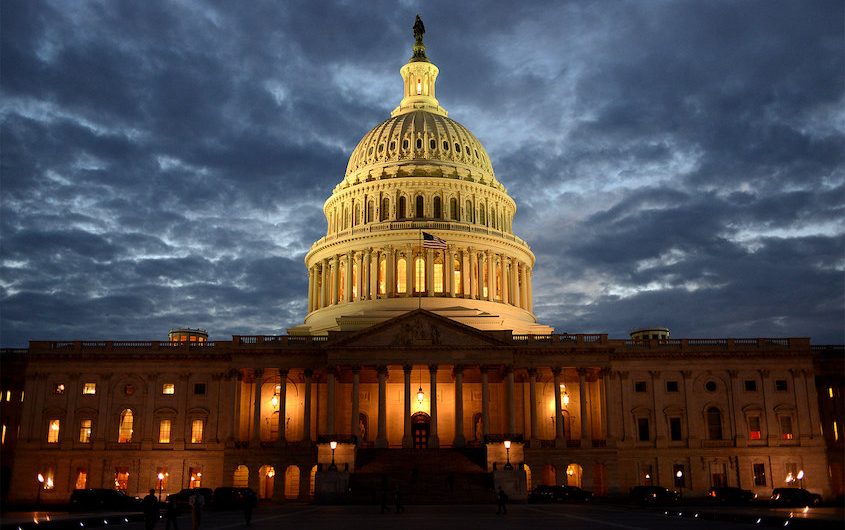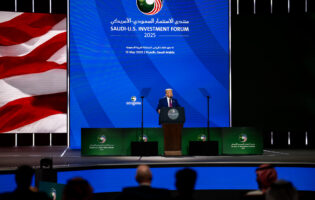
Stephen Melkisethian via Flickr
After the Capitol Siege: Politics First, Then Economics

Peter S. Rashish
Vice President; Director, Geoeconomics Program
Peter S. Rashish, who counts over 30 years of experience counseling corporations, think tanks, foundations, and international organizations on transatlantic trade and economic strategy, is Vice President and Director of the Geoeconomics Program at AICGS. He also writes The Wider Atlantic blog.
Mr. Rashish has served as Vice President for Europe and Eurasia at the U.S. Chamber of Commerce, where he spearheaded the Chamber’s advocacy ahead of the launch of the Transatlantic Trade and Investment Partnership. Previously, Mr. Rashish was a Senior Advisor for Europe at McLarty Associates, Executive Vice President of the European Institute, and a staff member and consultant at the International Energy Agency, the World Bank, UNCTAD, the Atlantic Council, the Bertelsmann Foundation, and the German Marshall Fund.
Mr. Rashish has testified before the House Financial Services Subcommittee on International Monetary Policy and Trade and the House Foreign Affairs Subcommittee on Europe and Eurasia and has advised three U.S. presidential campaigns. He has been a featured speaker at the Munich Security Conference, the Aspen Ideas Festival, and the Salzburg Global Seminar and is a member of the Board of Directors of the Jean Monnet Institute in Paris and a Senior Advisor to the European Policy Centre in Brussels. His commentaries have been published in The New York Times, the Financial Times, The Wall Street Journal, Foreign Policy, and The National Interest, and he has appeared on PBS, CNBC, CNN, NPR, and the BBC.
He earned a BA from Harvard College and an MPhil in international relations from Oxford University. He speaks French, German, Italian, and Spanish.
One of the signature lines in Bertolt Brecht’s Three Penny Opera, a product of social ferment in 1920s Berlin, is “Erst kommt das Fressen, dann kommt die Moral.” One implication of this idea that “sustenance comes before morality” is that economics (material welfare) is primary, while politics (organized values) is secondary.
After last week’s events at the U.S. Capitol, this view needs to be definitively turned on its head. The appalling unrest in the halls of Congress has crystallized the realization that without the right political system, there is no guarantee of economic wellbeing. As a thought experiment, how many Americans would entrust decisions about jobs, infrastructure, social security, or the dollar to the angry mob that stormed onto the House floor? Very few—but would this reluctance stem from the insurrectionists’ views on economic policy (whatever they may be) or from the political anarchy they would bring about?
The appalling unrest in the halls of Congress has crystallized the realization that without the right political system there is no guarantee of economic wellbeing.
Because politics comes before economics, that may be why the National Association of Manufacturers, one of the largest U.S. business associations, called for Vice President Pence to “seriously consider working with the Cabinet to invoke the 25th Amendment” to remove President Trump from office. Or, why several major U.S. companies ranging from AT&T to Disney to Marriott announced they were ending political donations to Republican politicians who supported the fateful effort on January 6 to block the certification of the Electoral College results. Morality (democratic governance) is taking precedence over sustenance (corporate-friendly policies) in parts of the U.S. private sector.
Politics comes first not just at home but also abroad. Perhaps ironically, that is especially true when it has to do with international trade and economic policies. If the global economy isn’t governed by the right rules—that is, if its politics are failing—then current or future trade agreements and institutions will not support the interests of U.S. workers, consumers, and companies as strongly as they should. This makes it imperative to strengthen the rules of the World Trade Organization so that it is better able to reflect the values of the United States and its close allies in Europe in the face of a rising China.
That task will require sustained economic statecraft, one where the transatlantic partners place their long-term strategic interests rather than short-term commercial considerations at the center. That does not mean that the United States needs to “decouple” from the Chinese economy. Or that the EU was wrong to sign a Comprehensive Agreement on Investment with China at the end of last year—although its rushed conclusion before there was an opportunity to coordinate with the incoming Biden administration is a diplomatic coup for Beijing.
But it does imply that even as the transatlantic partners remain economically engaged with China, their priority should be to create leverage to encourage China to adopt and conform to new rules for trade. Politics first, then economics.









